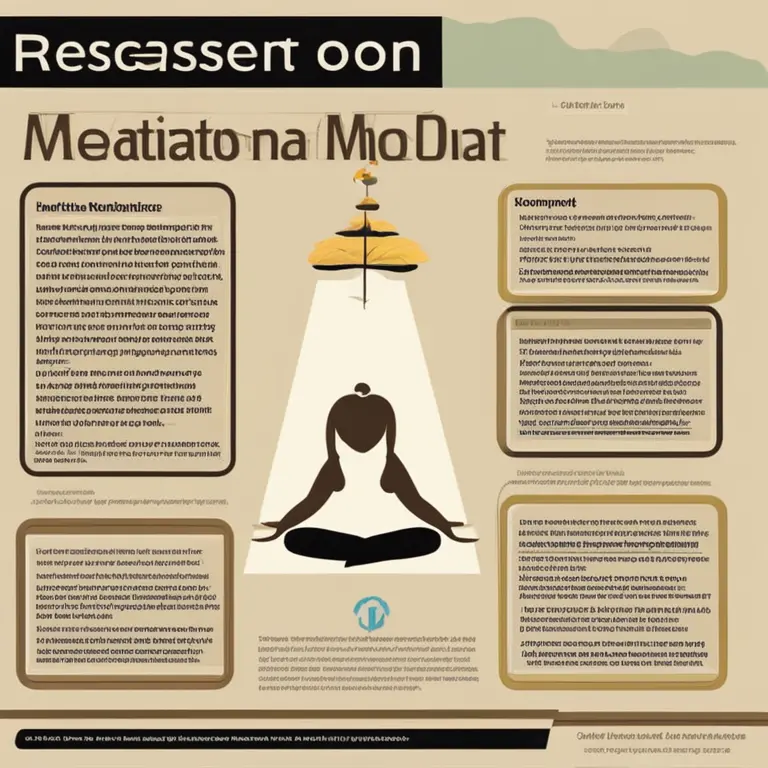
Easing Pain With Mindfulness Meditation
Discover how meditation can be a powerful tool for pain management, offering natural relief and mind-body harmony.
article by Hina Kurosawa
Introduction to Meditation for Pain
Meditation has long been celebrated for its mental health benefits, but recent studies have also highlighted its effectiveness in managing physical pain. Pain, whether acute or chronic, can significantly degrade quality of life, restricting activities and causing distress. However, through the disciplined practice of meditation, many individuals have found solace and a reduction in their discomfort. The act of meditating involves focusing the mind and finding a state of deep peace, which can shift attention away from pain, altering the perception of its intensity.

Mechanics of Meditation and Pain Relief
The essence of meditation's impact on pain lies in the way it changes brain patterns. Neuroscientists have found that regular meditation can lead to physical changes in the brain, including growth in areas associated with pain management. Changes in neural pathways, improved emotional regulation, and decreased anxiety levels contribute to the effectiveness of meditation as a pain management strategy. Through regular practice, individuals can potentially decrease their reliance on medication and improve their overall pain threshold.

Starting a Meditation Practice
Embarking on a meditation journey for pain management doesn't require special equipment or extensive training. For beginners, the process can start with just a few minutes daily in a quiet space free from distractions. Focusing on the breath, guided imagery, or a mantra can anchor the mind and stave off intrusive thoughts related to pain. As proficiency grows, so can the duration and complexity of meditation sessions, offering deeper levels of pain relief and relaxation.

Different Meditation Styles for Pain
Several meditation styles can be effective for pain management, including Mindfulness-Based Stress Reduction (MBSR), transcendental meditation, and body scan meditation. Each approach offers unique techniques to help individuals focus their attention in ways that distract from pain. Mindfulness, in particular, encourages a non-judgmental focus on the present moment, which can be particularly beneficial for those suffering from chronic pain conditions.

Scientific Evidence Supporting Meditation
Clinical research has bolstered the credibility of meditation as a pain reliever. For example, a 2021 study found that just ten minutes of mindfulness meditation could significantly reduce pain compared to a placebo. From a physiological perspective, meditation has been linked to the reduction of pro-inflammatory gene expression and an increase in pain-inhibiting neurotransmitters, providing a dual front in the battle against pain.
Integrating Meditation with Medical Treatment
While meditation can be a powerful tool, it is most effective when integrated with a comprehensive treatment plan. Medical professionals increasingly recognize the value of holistic approaches to pain management that include meditation. Patients are often encouraged to combine conventional treatments with meditation practices to enhance their pain relief outcomes and improve their overall well-being.
Overcoming Challenges in Meditation
Starting any new practice, including meditation, can present challenges. It is not uncommon for individuals to face initial difficulties with concentration or to experience frustration when pain seems to persist. However, with patience and persistence, the benefits of meditation become more apparent over time. Those who practice meditation for pain management often report long-term improvements in their pain experience and a greater sense of mental and emotional control over their condition.
Published: 1/14/2024
Modified: 1/15/2024
More predictions
Come back here soon to learn more about yourself and your future


Mindfulness & Meditation: A Guide for High Schoolers
Discover the benefits of mindfulness meditation tailored for the hectic life of high school students, and learn simple strategies to incorporate it into the daily routine.


Harmonizing Life with Meditation Mantras
Delve into the transformative power of meditation mantras to align mind, body, and spirit for a harmonious existence.


Discovering Life with Meditation Mantras
Delve into the transformative power of meditation mantras to harmonize your mind, body, and spirit for a tranquil existence.